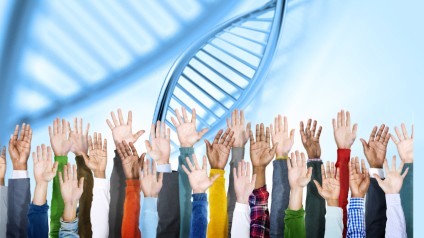Public dialogue on genomic medicine

On the occasion of the 70th anniversary of the discovery of the DNA double helix, the Council of Europe Steering Committee for Human Rights in the fields of Biomedicine and Health (CDBIO) published a report regarding the public dialogue on genomic medicine.
The report, prepared by Mark Bale (UK, Rapporteur), reflects the main findings, positions and conclusions of a workshop organised on this theme in November 2022, and makes several recommendations, including:
- preparation of a practical guide on successful dialogue at local, national or regional level to support policy makers, funders and professionals who are implementing genomics in research or healthcare.
- Further work on genomic medicine reflects the principles of non-discrimination, especially of certain groups or individuals with an inherited genetic predisposition. Considering that genomic medicine may impact on insurance and employment, there is an opportunity to reinforce the principles of Recommendation of the Committee of Ministers to the member States on the processing of personal health-related data for insurance purposes, including data resulting from genetic tests. This includes the importance of “collective consultation” between all parties to increase confidence and transparency.
Fostering public dialogue to promote democratic governance and transparency in the field of biomedicine
In order to guarantee that the directions of innovation and the ethical challenges raised by technological developments are robustly deliberated, governance should go hand in hand with broad and informed public dialogue. Fostering a dialogue between the public, scientists, and policy makers should promote democratic governance and transparency in the field of biomedicine. This can assist policy makers in public consultations and, therefore, in ascertaining the most appropriate governance models needed for biomedical technologies and their applications. This is in line with Article 28 of the Oviedo Convention, which provides that “the fundamental questions raised by the developments of biology and medicine are the subject of appropriate public discussion in the light, in particular, of relevant medical, social, economic, ethical and legal implications, and that their possible application is made the subject of appropriate consultation”.
- Rapporteurs Report - Workshop on public dialogue on genomic medicine | by Mark balE, 2023
Related content

Workshop on public dialogue on genomic medicine









